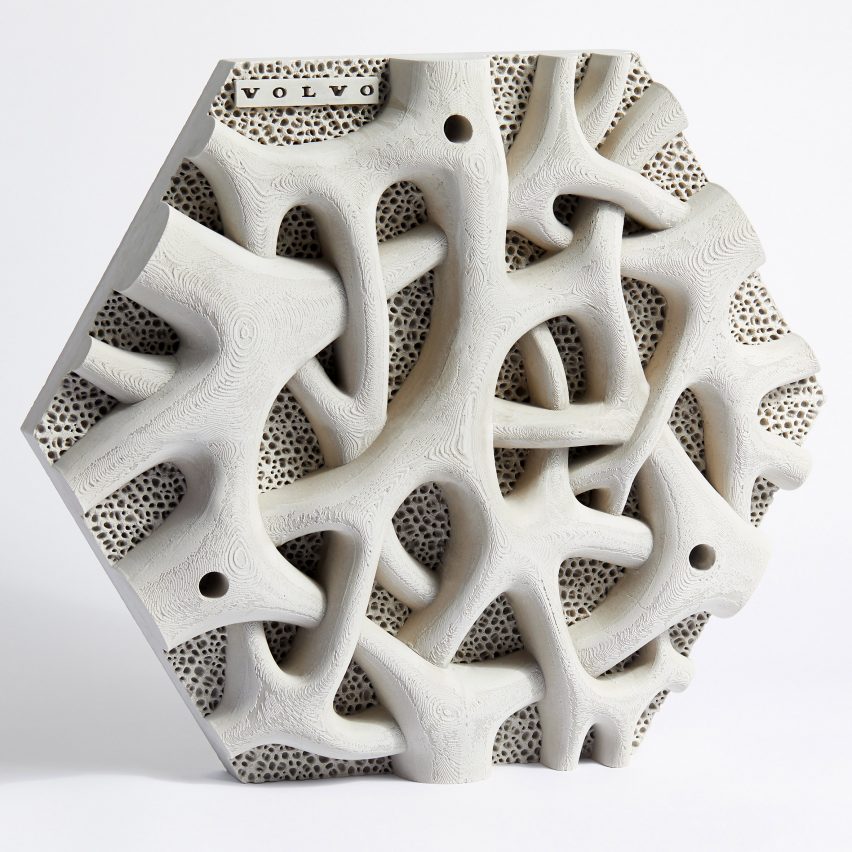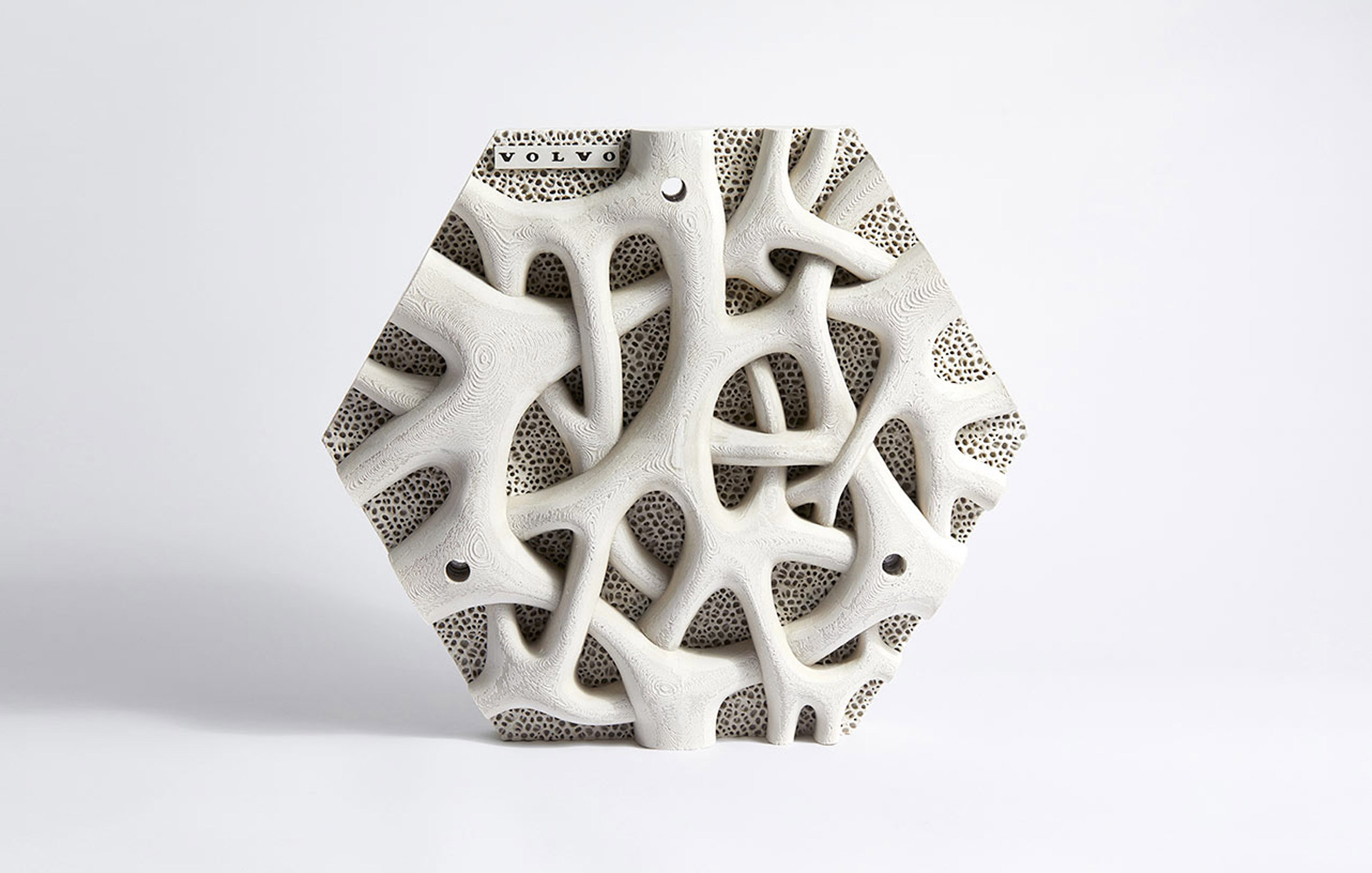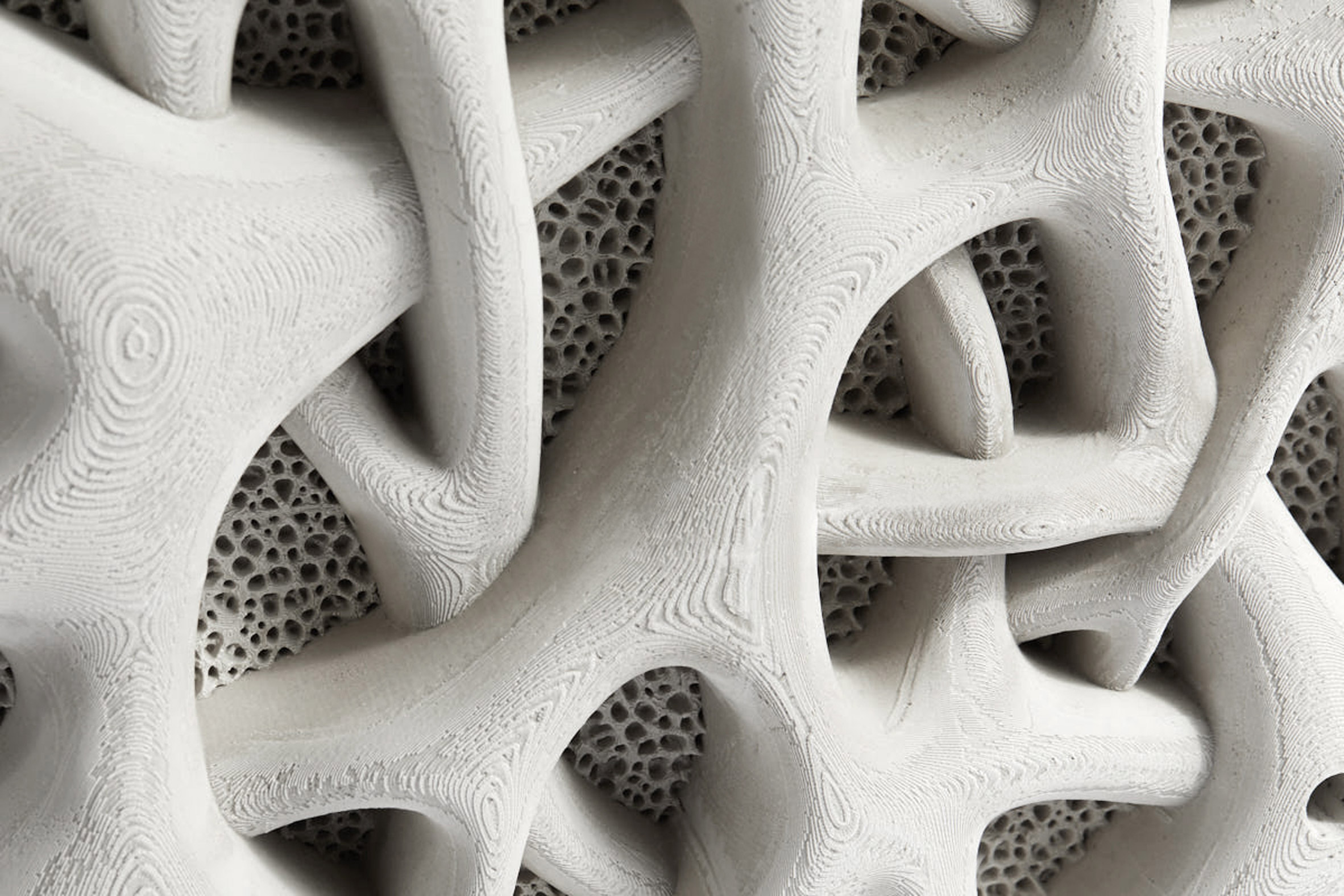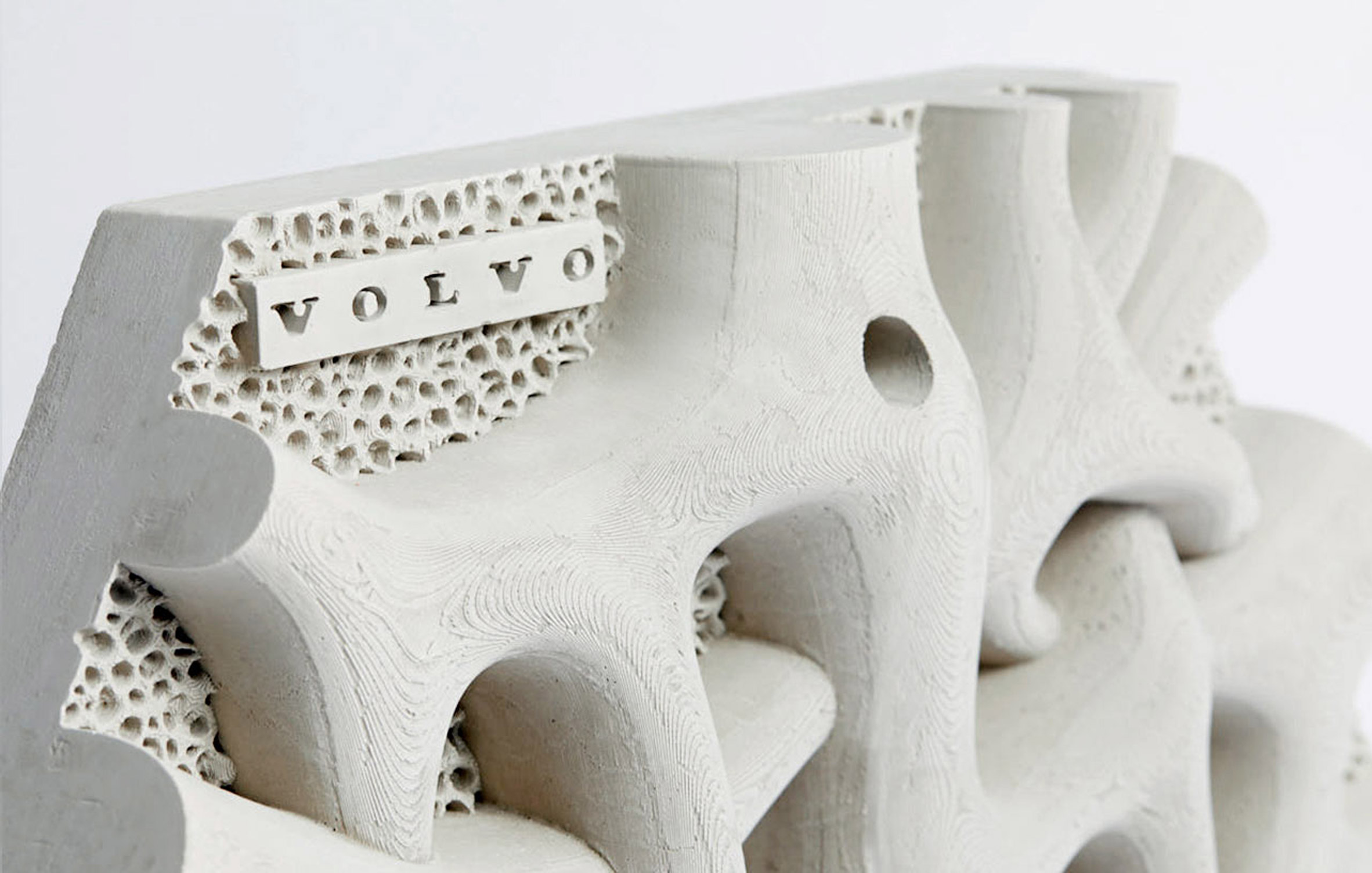
Volvo has installed an environmentally-friendly seawall along the coast of Sydney's harbour that aims to improve biodiversity and water quality in the area.
The Volvo Living Seawall consists of 50 hexagonal tiles with small corners and recesses that are designed to imitate the root structure of native mangrove trees – a popular habitat for marine wildlife.
Each tile is made from marine-grade concrete that has been reinforced with recycled plastic fibres.

Developed in collaboration with the Sydney Institute of Marine Science and Reef Design Lab, the project offers an alternative to traditional, linear seawalls, which are often linked to the loss of surrounding ecosystems.
Attached to the surface of the existing seawall structure, the irregular-shaped tiles are designed to attract wildlife such as oysters and molluscs, which filter the water by feeding on passing particles.
"Designed to mimic the root structure of native mangrove trees, the Living Seawall adds complexity to the existing seawall structure and provides a habitat for marine life," said Volvo.
"This aids biodiversity and attracts filter-feeding organisms that actually absorb and filter out pollutants – such as particulate matter and heavy metals – keeping the water clean. The more organisms we have, the cleaner the water," explained the brand.
Researchers will monitor the Living Seawall for the next 20 years to see how it affects biodiversity and water quality in the area.

Volvo developed the seawall tiles after its research found that one rubbish truck of plastic enters the world's oceans every minute, and more than half of Sydney's shoreline is made of artificial seawalls.
"Rich and vibrant habitats have been replaced with seawalls and degraded by plastic pollution," said the brand.
By adding the tiles to an existing seawall, the project aims to transform a man-made structure into a potential marine habitat.
"It also presents a unique opportunity to research which specific seawall designs and geometries best support the ecosystems in our oceans," added Volvo.

Volvo has pledged to replace all its single-use plastics with sustainable alternatives by the end of 2019.
Other companies taking similar initiatives include IKEA, which has revealed plans to eliminate all single-use plastics from its product range by 2020.
In a bit to reduce unnecessary packaging, UK national newspaper The Guardian recently scrapped its polythene packaging in favour of a compostable wrapping made from potato starch.
The post Volvo creates Living Seawall to combat pollution and promote biodiversity appeared first on Dezeen.
http://bit.ly/2S06YZB
twitter.com/3novicesindia
No comments:
Post a Comment